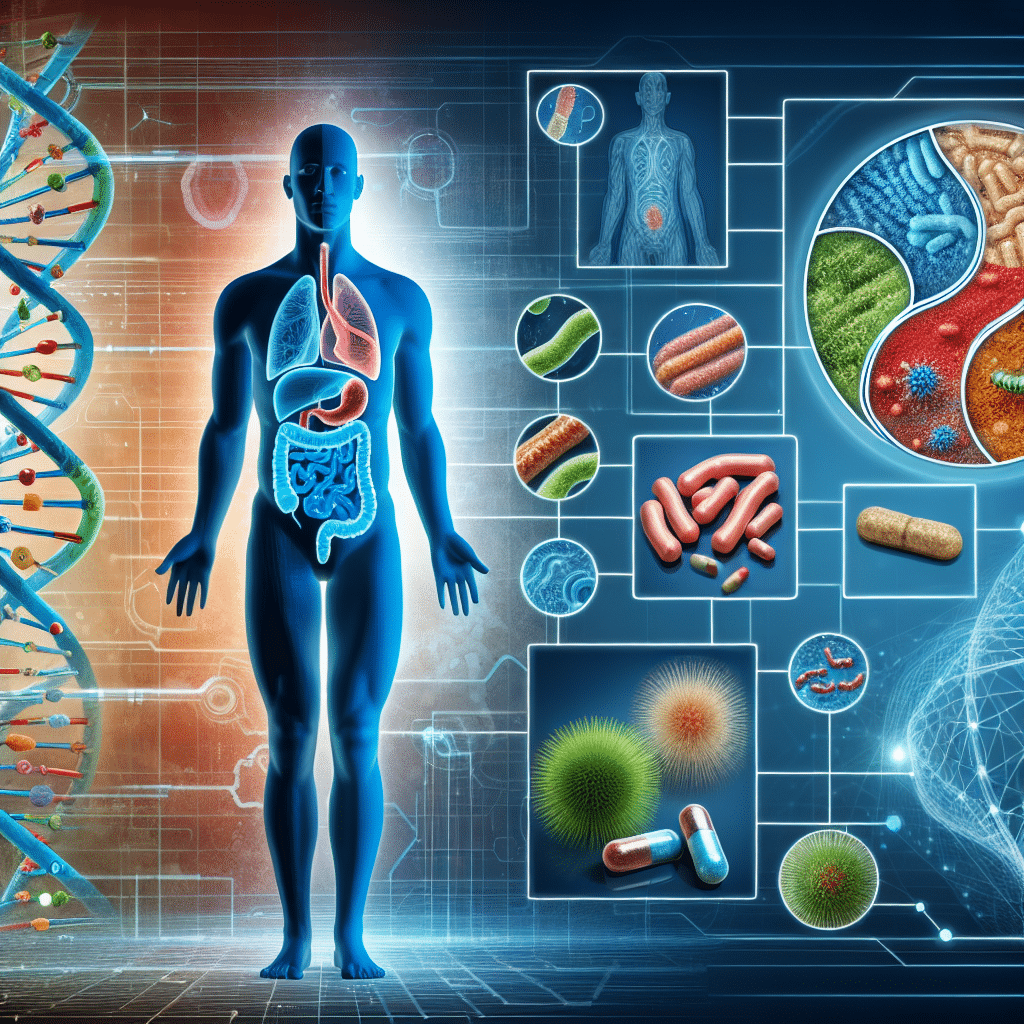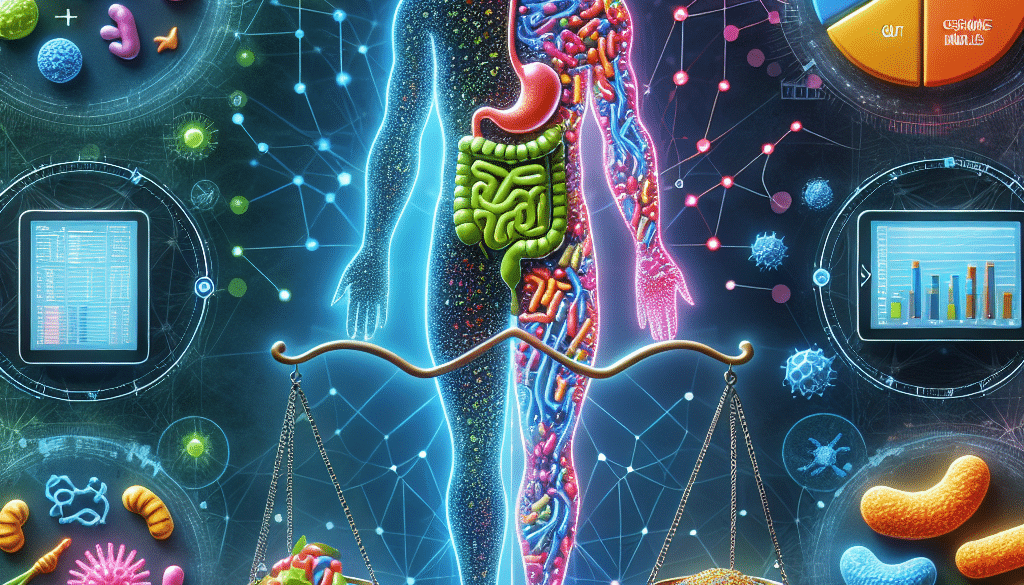Personalised Nutrition: Is It All About the Microbiome and Technology?
-
Table of Contents
- Personalised Nutrition: The Intersection of Microbiome and Technology
- The Microbiome: A Key Player in Personalised Nutrition
- Technology: The Enabler of Personalised Nutrition
- Case Studies and Statistics: Evidence of Efficacy
- Challenges and Considerations
- Conclusion: The Future of Personalised Nutrition
- ETprotein: Enhancing Personalised Nutrition with Quality Proteins
Personalised Nutrition: The Intersection of Microbiome and Technology

Personalised nutrition is an emerging field that promises to revolutionize the way we think about food and health. It’s a concept that tailors dietary recommendations to individual needs, based on a variety of factors including genetics, lifestyle, and perhaps most intriguingly, the microbiome. With the advent of advanced technology, the potential for personalized nutrition has expanded significantly. This article explores the role of the microbiome and technology in personalized nutrition, providing insights into how these elements are shaping the future of dietary guidance.
The Microbiome: A Key Player in Personalised Nutrition
The human microbiome is a complex ecosystem of bacteria, viruses, fungi, and other microorganisms that reside primarily in the gut. These microscopic inhabitants play a crucial role in our health, influencing digestion, immunity, and even mental well-being. Personalised nutrition considers the unique composition of an individual’s microbiome as a critical factor in determining the optimal diet for health and disease prevention.
- Microbiome Diversity and Health: A diverse microbiome is often associated with good health. Personalised nutrition aims to promote microbiome diversity through tailored dietary recommendations.
- Microbiome and Disease: Research has linked imbalances in the microbiome to various health conditions, including obesity, diabetes, and inflammatory bowel disease. Personalised nutrition seeks to address these imbalances with specific dietary interventions.
- Probiotics and Prebiotics: These are key components of personalised nutrition strategies aimed at enhancing the microbiome. Probiotics introduce beneficial bacteria, while prebiotics provide the necessary nutrients to support their growth.
Technology: The Enabler of Personalised Nutrition
Advancements in technology have been pivotal in the development of personalised nutrition. From data analytics to wearable devices, technology provides the tools needed to gather and interpret the vast amounts of data required for truly customized dietary advice.
- Genetic Testing: DNA testing can reveal genetic predispositions to certain health conditions, allowing for dietary adjustments that may mitigate risks.
- Wearable Devices: These gadgets track physical activity, sleep patterns, and even blood glucose levels, offering valuable insights into how diet affects an individual’s daily life.
- Mobile Apps: Nutrition apps can analyze dietary intake, provide personalized meal plans, and offer support and motivation for maintaining healthy eating habits.
- Artificial Intelligence: AI algorithms can process complex data from various sources to deliver precise nutritional recommendations tailored to individual needs.
Case Studies and Statistics: Evidence of Efficacy
Several studies have demonstrated the potential benefits of personalised nutrition. For instance, a study published in the journal “Cell” found that personalized dietary advice based on blood sugar responses to foods led to better glucose control compared to general dietary guidelines. Additionally, the “American Journal of Clinical Nutrition” reported that individuals who followed a diet tailored to their genetic makeup lost more weight than those on standard diets.
Statistics also support the growing interest in personalised nutrition. According to a report by Grand View Research, the global personalized nutrition market size was valued at USD 8.2 billion in 2020 and is expected to grow at a compound annual growth rate (CAGR) of 15.0% from 2021 to 2028. This growth is indicative of the increasing demand for customized dietary solutions.
Challenges and Considerations
Despite its promise, personalised nutrition faces several challenges. Ethical concerns about data privacy, the need for standardized protocols, and the potential for socioeconomic disparities in access to personalized nutrition services are all issues that must be addressed. Moreover, the science of the microbiome is still in its infancy, and more research is needed to fully understand its complexities and implications for diet.
Conclusion: The Future of Personalised Nutrition
Personalised nutrition, with its focus on the microbiome and the use of cutting-edge technology, is poised to transform the landscape of dietary guidance. By considering the unique characteristics of each individual, it offers a more effective approach to health and wellness. As research advances and technology becomes more accessible, personalized nutrition has the potential to become a standard part of healthcare, leading to improved outcomes and a new era of dietary precision.
ETprotein: Enhancing Personalised Nutrition with Quality Proteins
In the context of personalised nutrition, protein plays a vital role in maintaining health and supporting individual dietary needs. ETprotein company’s protein products are an excellent addition to a personalized nutrition plan, especially for those seeking plant-based options. Their range of organic bulk vegan proteins, including rice, pea, and various seed proteins, cater to diverse dietary preferences and restrictions. With non-GMO, allergen-free attributes, and high purity levels, ETprotein’s offerings are ideal for anyone looking to optimize their health through personalized nutrition.
About ETprotein:
ETprotein, a reputable protein and L-(+)-Ergothioneine (EGT) Chinese factory manufacturer and supplier, is renowned for producing, stocking, exporting, and delivering the highest quality organic bulk vegan proteins and L-(+)-Ergothioneine. They include Organic rice protein, clear rice protein, pea protein, clear pea protein, watermelon seed protein, pumpkin seed protein, sunflower seed protein, mung bean protein, peanut protein, and L-(+)-Ergothioneine EGT Pharmaceutical grade, L-(+)-Ergothioneine EGT food grade, L-(+)-Ergothioneine EGT cosmetic grade, L-(+)-Ergothioneine EGT reference grade and L-(+)-Ergothioneine EGT standard. Their offerings, characterized by a neutral taste, non-GMO, allergen-free attributes, with L-(+)-Ergothioneine purity over 98%, 99%, cater to a diverse range of industries. They serve nutraceutical, pharmaceutical, cosmeceutical, veterinary, as well as food and beverage finished product distributors, traders, and manufacturers across Europe, USA, Canada, Australia, Thailand, Japan, Korea, Brazil, and Chile, among others.
ETprotein specialization includes exporting and delivering tailor-made protein powder and finished nutritional supplements. Their extensive product range covers sectors like Food and Beverage, Sports Nutrition, Weight Management, Dietary Supplements, Health and Wellness Products, and Infant Formula, ensuring comprehensive solutions to meet all your protein needs.
As a trusted company by leading global food and beverage brands and Fortune 500 companies, ETprotein reinforces China’s reputation in the global arena. For more information or to sample their products, please contact them and email sales(at)ETprotein.com today.












